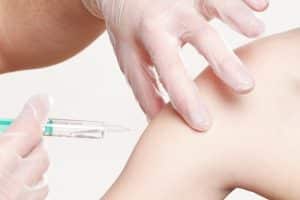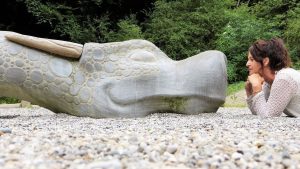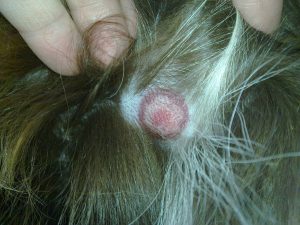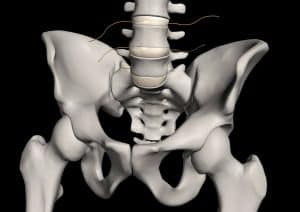“Should I Get the Flu Shot?”
It’s a question asked of me frequently, and not an easy one to answer. A review of recent research suggests a decent 42% effectiveness for last year’s vaccine[i],[ii], but also with little to no impact on days of work lost, hospitalizations, or complications from influenza in generally healthy people[iii]. A review last year even noted lack of benefit to the elderly in long term care facilities when healthcare workers were routinely immunized [iv]. Despite the confusion, prevailing medical opinion continues to promote the flu shot as the best way to protect ourselves and the vulnerable members in our community. So, while I struggle to offer clear advice regarding the flu vaccine, here’s what I can tell you about the flu virus:

 Menopause is a natural phase of a woman’s life but many of us aren’t clear about what is going on in our bodies during this time. Did you know that menopausal symptoms can begin as early as 35 years of age? Do you know what health conditions women are at increased risk for post-menopause? This seminar will go through it all.
Menopause is a natural phase of a woman’s life but many of us aren’t clear about what is going on in our bodies during this time. Did you know that menopausal symptoms can begin as early as 35 years of age? Do you know what health conditions women are at increased risk for post-menopause? This seminar will go through it all. Bio-identical hormones offer treatment options for menopausal symptoms such as insomnia and anxiety. They are considered a safer alternative to synthetic hormones but do carry their own risk. If you are considering hormonal therapy of any kind this talk is for you.
Bio-identical hormones offer treatment options for menopausal symptoms such as insomnia and anxiety. They are considered a safer alternative to synthetic hormones but do carry their own risk. If you are considering hormonal therapy of any kind this talk is for you.  Lyme Disease. I have a difficult time thinking of a more contentious health topic. The chronicity of the disease continues to be rejected by most of our medical professionals despite intense pressure from grassroots and non-profit organisations to remain more open minded about the thousands of Canadians suffering with chronic, debilitating symptoms.
Lyme Disease. I have a difficult time thinking of a more contentious health topic. The chronicity of the disease continues to be rejected by most of our medical professionals despite intense pressure from grassroots and non-profit organisations to remain more open minded about the thousands of Canadians suffering with chronic, debilitating symptoms. Perhaps you had a routine physical exam and blood testing with your Medical Doctor or Naturopathic Doctor and discovered that your blood sugar was uncomfortably high. Maybe you’re concerned about your family history of diabetes or heart disease and already recognize that prevention is key. It’s a common scenario in my office, perhaps because an estimated 22% of Canadians have pre-diabetes. For the most part, type 2 diabetes is a lifestyle illness, but not always in the way we think it is.
Perhaps you had a routine physical exam and blood testing with your Medical Doctor or Naturopathic Doctor and discovered that your blood sugar was uncomfortably high. Maybe you’re concerned about your family history of diabetes or heart disease and already recognize that prevention is key. It’s a common scenario in my office, perhaps because an estimated 22% of Canadians have pre-diabetes. For the most part, type 2 diabetes is a lifestyle illness, but not always in the way we think it is. Insulin is a hormone produced by our pancreas that helps sugar (i.e. glucose) enter our cells. It has a major impact on our metabolism and how our body gets energy. When our muscle, brain and tissue cells stop responding to insulin this causes a condition called insulin resistance. If our cells become resistant to insulin then our pancreas needs to create even more insulin to get the glucose inside those stubborn cells. This can become a slippery slope
Insulin is a hormone produced by our pancreas that helps sugar (i.e. glucose) enter our cells. It has a major impact on our metabolism and how our body gets energy. When our muscle, brain and tissue cells stop responding to insulin this causes a condition called insulin resistance. If our cells become resistant to insulin then our pancreas needs to create even more insulin to get the glucose inside those stubborn cells. This can become a slippery slope

 Before the year 2000, most medical approaches assumed that the adult brain continuously lost brain cells and was incapable of regeneration. We now know that the brain is incredibly plastic, meaning that it can adapt, grow, and heal. Up until 2 years ago, we believed that the brain was anatomically entirely separate from our immune system. However, the very recent
Before the year 2000, most medical approaches assumed that the adult brain continuously lost brain cells and was incapable of regeneration. We now know that the brain is incredibly plastic, meaning that it can adapt, grow, and heal. Up until 2 years ago, we believed that the brain was anatomically entirely separate from our immune system. However, the very recent 